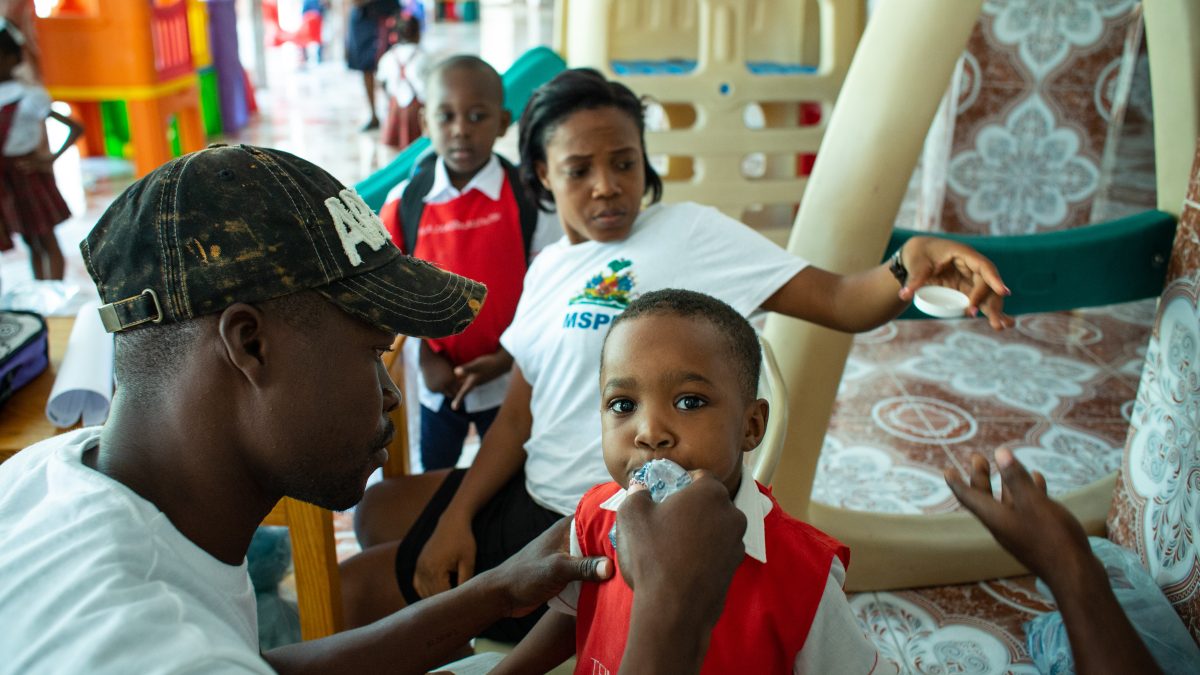Haiti

The Carter Center has worked in Haiti for decades, first supporting the country in its struggle for democratic governance and prospects for development. We now partners with ministries of health to eliminate two mosquito-borne infections – malaria and lymphatic filariasis – from Hispaniola, the island Haiti shares with the Dominican Republic. Haiti was also selected by the Center to pilot a successful community support group program for people living with lymphatic filariasis.
Short-term Goals
We are working to eliminate malaria and lymphatic filariasis.
Impact
- Helped malaria cases drop by more than 54% since 2010
- Saw 86% of districts meet the criteria to stop mass drug administration for lymphatic filariasis
- Launched a pilot support group program for people living with lymphatic filariasis
- Monitored the country’s first credible election and paved the way for restoration of elected leaders after a military coup
At a Glance

Global Impact Starts with You
Your support sustains the Carter Center's mission of waging peace, fighting disease, and building hope around the world.

